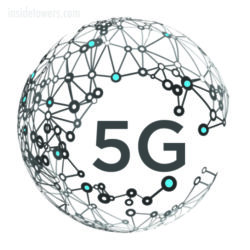UPDATE Now that FCC Chairwoman Jessica Rosenworcel plans to have the Commission vote on the return of net neutrality, strong opinions both for and against, are being voiced, Inside Towers reported. The rules consist of no blocking, no throttling speed and no unreasonable paid prioritization of internet content. The FCC released the draft order yesterday.
Because the Democrats are in favor of the issue, the item will likely pass 3-2 on April 25. New Street Research (NSR) says no matter what happens, its analysts are “skeptical” the rules will be “material” to the financial performance of ISPs, according to NSR Policy Advisor Blair Levin.
Even though the backbone of the rules largely mirrors the 2015 version under then-Chair Tom Wheeler, there are differences. Levin notes a question is whether there will be preemption of state action. “We think this matters less than in the past, except that it could affect the legality of state efforts to mandate targeted programs for low-income households in the wake of the likely demise” of the Affordability Connectivity Program.
A new issue is how 5G network slicing is treated, putting the wireless companies on one side against the cable industry, and some public interest groups on the other. Network slicing “allows a network operator to provide dedicated virtual networks with functionality specific to the service or customer over a common network infrastructure,” according to the Commission.
Part of the agency’s plan is to reclassify broadband as a Title II service. Some public interest advocates have suggested that the non-discrimination principles inherent in Title II require the Commission to circumscribe the use of network slicing in providing mobile broadband internet access as well as in other data services, notes Levin.
Wireless providers like T-Mobile (NASDAQ: TMUS) “suggest this argument fundamentally misunderstands the nature of network slicing, which is not to discriminate but rather, to provide additional network management capabilities that better match wireless services to specific needs in a way that increases the spectrum utilization, and that slicing should be viewed as an enabler of innovation and improved network performance,” quotes Levin.
Previous orders under Democrats have exempted such “managed services” from the general rules on net neutrality. The cable industry agrees with some of the public interest groups, arguing the FCC “should decline calls to revise those definitions to incorporate overt references to, or special allowances or more flexible regulatory treatment for, particular technologies, such as ‘network slicing’ employed on 5G wireless networks.”
NSR believes the FCC majority will stick with the 2015 order to avoid a set of new enforcement challenges.
“Like its predecessors, this policy debate will generate significant headlines and commentary, is unlikely to generate significant changes in how the ISPs operate, nor material changes in their revenues, margins, or opportunities,” says Levin in a client report.
He characterizes the biggest investor fear as the new rules opening the door to price regulation. The FCC says this isn’t in the new rules and NSR expects the order “to explicitly forebear from price regulation,” states Levin.
Levin summarizes: “From an investor perspective, we think the bottom line is regardless of the outcome of the FCC and subsequent judicial proceedings, no one should count on ISPs improving revenues or margins by virtue of strategy that requires blocking, throttling, or unreasonable prioritization.” The judicial proceedings he’s referring to mean if the ISPs and cable industry takes the FCC to court.
By Leslie Stimson, Inside Towers Washington Bureau Chief





Reader Interactions